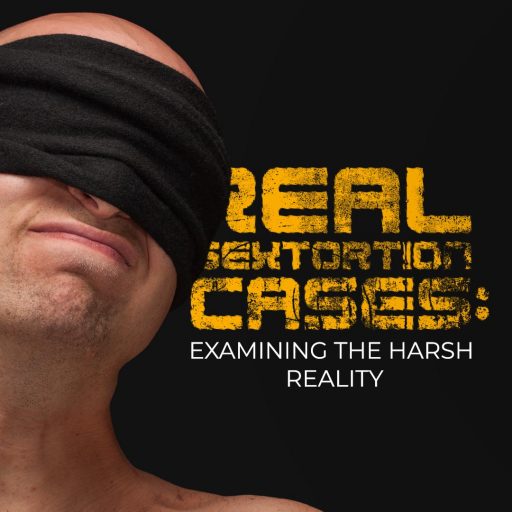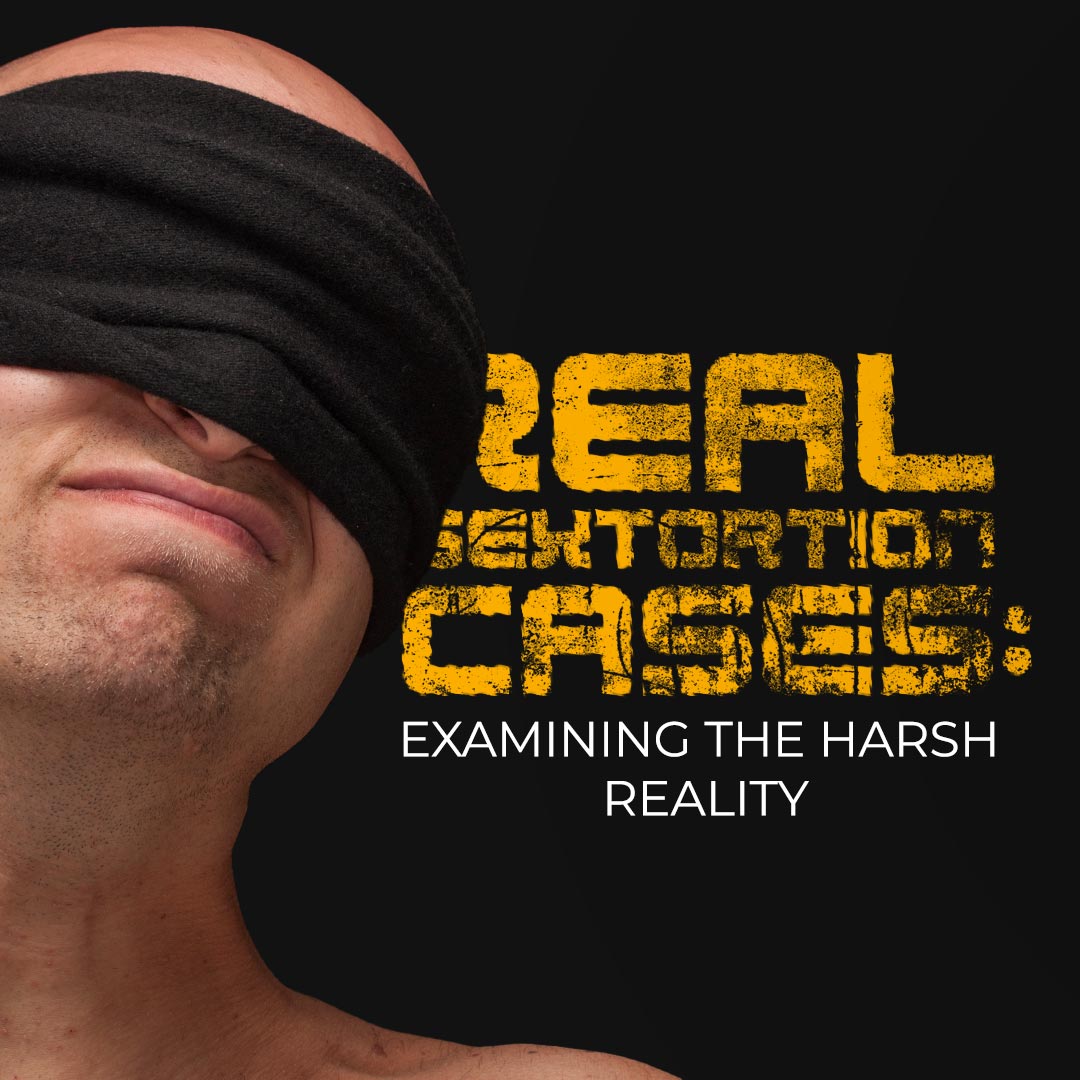While it is easy to assume that sextortion only happens to those seeking relationships online, the truth is far more sinister—we have seen several real-life cases where ordinary people became targets with unthinkable results. In this blog post, we will be examining severe real sextortion cases from all over the world and exploring how they can affect real victims like you or someone you care about if not stopped in time.

Case Study 1: Unveiling a Disturbing Sextortion Incident
When we think of online predators, our minds often jump to fear, horror stories, and the worst possible outcomes. But sometimes, these threats become a reality with devastating consequences for their victims.
In the first case, a young woman named Amanda Todd was just 15 years old when she met a stranger on Facebook, and her life changed forever. Her story began to unfold when she was coerced into flashing the camera. The criminal then took the images and used them to blackmail her. He threatened to share the images with her family and friends if she did not continue to send even more revealing photos and videos.
Todd endured years of harassment and bullying from this assailant before ultimately taking her own life. The devastating and long-lasting effects of sextortion cannot be overstated. May her story serve as a reminder of just how important it is to stay vigilant and be cautious in all online interactions.
Case Study 2: The Devastating Impact of Sextortion on Victims
The second case involves a man from California, Michael Frito, who is charged with allegedly blackmailing over 350 women into sending him sexually explicit photos and videos. Frito created fake social media profiles to befriend women and convince them to send him intimate content. Once he had the content, he would threaten to share it with their friends and family unless they sent him more explicit material.
This form of exploitation can have a severe impact on the victims, and it can damage their mental health as well. Michael Frito faces multiple charges for his reprehensible acts, including extortion, cyber stalking, and possession of child pornography. These two cases serve as a sobering reminder of the importance of protecting ourselves online.
Case Study 3: Understanding the Tactics Used in Sextortion Cases
One common tactic used in sextortion is the use of intimidation. Sextortionists usually threaten to publicize sensitive information, photos, or videos if the victims fail to comply with their demands, as we talked about in the cases above. Some even create fake profiles on social media, posing as law enforcement officials or lawyers to scare their victims.
Additionally, the internet has made sextortion possible, and criminals have capitalized on this. Some sextortionists use software to fake videos and images or to create fake profiles to interact with their victims.
In some instances, they have used malware to access their victim’s webcam and microphone, allowing them to record their conversations or actions. Some also use social engineering techniques to access their victim’s personal information, which they use to create a formidable threat. It is essential to understand these tactics to avoid falling prey to these cybercriminals, who often have malicious intentions.

Lessons Learned: Insights from Real Sextortion Cases
These real-life cases reveal that anyone can fall victim to cyber sextortion, whether they be adults or children, men or women. They also demonstrate how easily perpetrators can exploit a person’s vulnerability online. Being cautious and informed of the dangers of sharing personal information online is essential.
Furthermore, educating yourself and your loved ones on how to protect yourselves against predators and malicious hackers who may compromise your data is crucial.
Protecting Yourself: Applying Lessons from Real Sextortion Cases
Protecting yourself against sextortion and other cyber threats should be a priority. It is best to avoid sharing sensitive information online, especially with strangers or people you have never met in person. You can also use privacy tools like VPNs to keep your internet connection secure, regularly update your software, and always have antivirus software running.
It is crucial to be mindful of the information you post online, particularly if it can identify you or your location. Always practice safe browsing habits and report suspicious activity to the authorities.
Raising Awareness: Sharing Real Sextortion Stories for Prevention
By sharing real sextortion stories and raising awareness, we can help prevent others from falling prey to these predators. We must spread the word about the dangers of sharing personal information online and educate individuals to be mindful of their actions. Our collective efforts can help protect others from the devastating impact of sextortion.
Conclusion
These real sextortion cases highlight the severity of cyber threats, especially regarding adult content. Educating ourselves and our loved ones on the measures we can take to protect our privacy and data online is crucial. By examining these cases, learning from the lessons, and sharing the stories that raise awareness, we can work towards preventing sextortion, cybercrime, and other malicious activities online. Let us all take responsibility and help make the Internet a safer place.
If you or someone you know has additional questions on these real-life sextortion cases, contact Digital Forensics today. Always remember you are not alone; you can report cyber sextortion 24/7 with our internet sextortion helpline.







